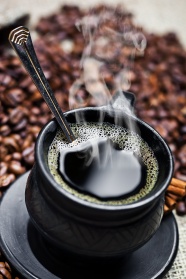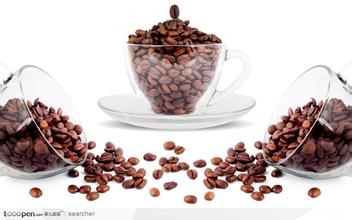Introduction to the flavor and taste characteristics of Bolivian coffee manor with long-lasting aroma
Bolivia was conquered by Spain at the end of the 15th century and became a Spanish colony in 1538, historically known as Peru, belonging to the governor district of La Plata, Spain.
Bolivia became independent during the War of Independence in Latin America in the 18th century, when it was rescued by Bolivar, a national hero from Caracas, Venezuela, so the country was named after him. On August 6, 1825, independence from Spain was declared, named the Bolivarian Republic, and later changed to its present name.
It formed a federation with Peru in 1836 and collapsed as a result of the Chilean invasion in 1839.
In 1863, rich saltpetre deposits were discovered in Atacama province along the Pacific coast. In 1879, Chile sent troops to occupy the mining area, and Bolivia joined forces with Peru to wage the "Pacific War" with Chile. Bolivia was defeated in 1883 and ceded the saltpetre-rich Pacific coast to Chile in 1904. Bolivia lost its only coastal province, including the important port of Antofagasta, and has been a landlocked country ever since. However, Bolivia has always claimed sovereignty over this place and claimed that the 1904 treaty was null and void. [3]
In 1932, the Chaco War broke out between Bolivia and Paraguay for oil resources in the North Chaco region. Bolivia was defeated and lost a large area of territory.
The people's armed uprising broke out in April 1952, and Paz Estenssoro, leader of the nationalist revolutionary movement, became president. Since then, there have been frequent military coups and long-term political instability. In October 1983, a modern bourgeois democracy with South American characteristics was restored.
On December 18, 2005, the presidential election was held. Aymara Indian, Evo Morales, leader of the Bolivian socialist movement, won the election with 53.75% of the vote and took office on January 22, 2006. He became the country's first Native American president and Bolivia's first left-wing president. The construction of the Bolivian state with progressive community socialism (that is, Indian socialism) as the basic value concept began.
On 25 January 2009, the 16th Constitution in the history of the Republic of Bolivia, which was also the first referendum, was adopted by 61.8% of the votes in favour.
On March 26th, Morales signed the Supreme decree declaring that the original name of the country would be changed from "Rep ú blica deBolivia" to "Bolivia (Plurinational State of)" (El Estado Plurinacional deBolivia).
Takesi Manor, the treatment of drinking water and coffee after harvest, uses ice-cold mountains and rivers that melt high mountains, so we give her a nickname: Takesi Snow vein Manor. In addition to a low-temperature, pollution-free environment, fertile and well-drained volcanic soil is also an element of coffee flavor. Although the owner of Agrotakesi SA is rich, he secretly respects nature and the way of getting along with each other, does not over-cultivate, and retains a large number of primitive forests and diverse ecological environment. It is famous for its crops such as apples, orchids and flowers, and now it has won the first prize in the coffee contest, and Takesi's reputation has become even more popular.
I remember that the admirable champion bean in 2007 was Coffee Manor, but her score was overtaken by the 2008 champion Cafe de Cordillera, when the international judges gave it a high score of 92.03. in 2009, Takesi Snow vein Manor got a score of 93.36, surpassing the champion of 2008, and the bidding price was as high as US $35.05. it was the highest bid in CoE national competition in 2009! Osher has been bidding for Bolivia's champion beans for three years in a row. She is really attracted by her delicate floral fragrance, charming sweet vanilla and clean and changeable flavor. In 2010, due to a mixture of factors, Bolivia decided to cancel the national competition to examine the Takesi winning beans. There are mixed feelings and hard-won wet fragrance: flowers, refreshing perfume, sweet chocolate, berries.
Sipping: many kinds of floral aromas, excellent cleanliness and fineness, fine vanilla sweet, delicate sugar, peaches, apricots, sour and sweet, premium Burgundy red wines, vanilla plants, green apples, white grapefruit, essential oil aromas, delicate and smooth touch, sweet finish and long-lasting aromas.
Record of in-depth visit to coffee producing areas in Bolivia
Osher's cup tester has served as the international judge of every CoE national competition, in terms of road conditions and climate, and even visa difficulties, Bolivia is the most difficult, but her coffee is so fragrant, even if the beer is also full of wild honey sweet, drink at room temperature, that beer is like foaming caramel syrup, so far, the aftertaste is endless.

Important Notice :
前街咖啡 FrontStreet Coffee has moved to new addredd:
FrontStreet Coffee Address: 315,Donghua East Road,GuangZhou
Tel:020 38364473
- Prev

Ethiopian Coffee Flavor and taste introduction to the producing areas of Fine Coffee beans in the Manor
In February 1977, Lieutenant Colonel Mengistu Haier Maryam (MENGISTU HAILE MARIAM) launched a military coup and served as Chairman of the interim military Administrative Council and head of State. In 1979, the Ethiopian Labor people's Party Organization Committee, dominated by soldiers, was established to implement an one-party system. In 1984, the Ethiopian Workers' Party was formed according to the Soviet Communist Party model. Mengistu, September 1987
- Next

Cool taste of Kenya Jinchu Valley Coffee Estate Flavor Taste Characteristics Boutique Coffee Introduction
Kenya's national emblem, enacted in 1963, centers on a fusiform coat of arms in the same color as the national flag, with a golden lion on each side, one arm holding a spear and one arm holding the coat of arms. The white rooster with an axe in the center of the back is the emblem of the Kenya African National Union. According to local tradition, the rooster symbolizes a new life. The two lions embody national sovereignty and dignity, and also imply Kenya and Kenya.
Related
- Detailed explanation of Jadeite planting Land in Panamanian Jadeite Manor introduction to the grading system of Jadeite competitive bidding, Red bid, Green bid and Rose Summer
- Story of Coffee planting in Brenka region of Costa Rica Stonehenge Manor anaerobic heavy honey treatment of flavor mouth
- What's on the barrel of Blue Mountain Coffee beans?
- Can American coffee also pull flowers? How to use hot American style to pull out a good-looking pattern?
- Can you make a cold extract with coffee beans? What is the right proportion for cold-extracted coffee formula?
- Indonesian PWN Gold Mandrine Coffee Origin Features Flavor How to Chong? Mandolin coffee is American.
- A brief introduction to the flavor characteristics of Brazilian yellow bourbon coffee beans
- What is the effect of different water quality on the flavor of cold-extracted coffee? What kind of water is best for brewing coffee?
- Why do you think of Rose Summer whenever you mention Panamanian coffee?
- Introduction to the characteristics of authentic blue mountain coffee bean producing areas? What is the CIB Coffee Authority in Jamaica?

